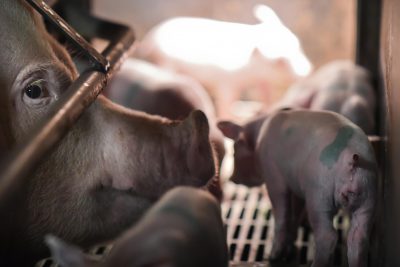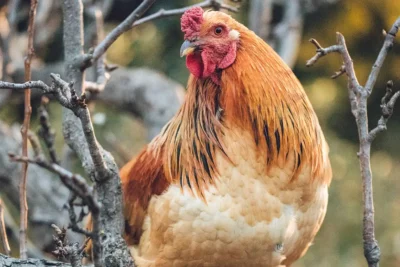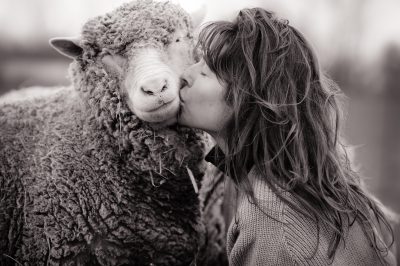Pigs are misunderstood creatures who, if we knew them better, we’d certainly love just as much as we do our companion animals. In truth, pigs aren’t too different than dogs are. They are complex, intelligent, empathetic animals who deserve our consideration. It might be time to update our frameworks for how we think about—and treat—pigs.
How Smart Are Pigs?
There is no doubt at all that pigs are smart. They have great directional skills and memory, and can remember where food was so they can return to it later. When lost, pigs can find their way home over long distances. The New York Times even reported on pigs who used mirrors to find food.
In one study, pigs were taught to move a cursor on a screen and were asked to pick out scribbles they recognized and had seen before from those that were new. The pigs were able to do this as quickly as chimpanzees. They also have the capacity to manipulate objects like food and water devices and turn fans or heaters on and off. There is so much more to their cognitive abilities. We should never underestimate pigs.
How Do Pigs Behave and Feel?
There’s no shortage of evidence that pigs in relaxed and fun environments really know how to enjoy themselves. Pigs love sunbathing, wallowing, running, and playing around. Pigs often love pets and belly rubs—just like some dogs you might know and love. And they even wag their tails when they’re happy or excited.
To get an idea of just how fun-loving and charismatic pigs can be, please meet Esther the Wonder Pig. Sadly, Esther died a little while ago, but her family shares images of her extraordinary life and they are beautiful and heartwarming to see.
How Are Pigs Treated Today?
The lives of most pigs today are utterly miserable. In America, very few laws and essentially no federal laws protect pigs. One of the few federal laws, the Humane Slaughter Act was passed in the 1950s under President Eisenhower and has barely been updated or enforced since. Meanwhile, farm production has scaled up drastically and conditions have gotten far worse.
Farms, where pigs are raised, are far from an idealistic pasture where pigs can run free. Instead, pigs are raised in dark, smelly, and dirty factory farms with thousands of other animals cramped closely together.
Shortly after birth, at just two to three weeks old, they are separated from their mothers. They go through cruel mutilations: male piglets can be castrated, and piglets’ tails are often “docked” meaning ripped or cut off. This all happens without the use of anesthesia.
Breeding mothers are often placed in gestation crates for their entire pregnancy and after. These are cages that are so small, mother pigs can’t even stand up or turn around. The floor can cause pressure sores on their shoulders, while the high levels of ammonia can cause respiratory problems. They are impregnated 2-2.5 times a year only to have their babies taken from them over and over. The mothers must endure this cycle again and again until they are exhausted or infertile and are considered “spent.”
How Can We Help Pigs?
Anyone who takes a look at the suffering endured by these animals will recognise immediately that this is not a compassionate or just way to treat others. The best way to end this suffering is to boycott the industry that causes it.



